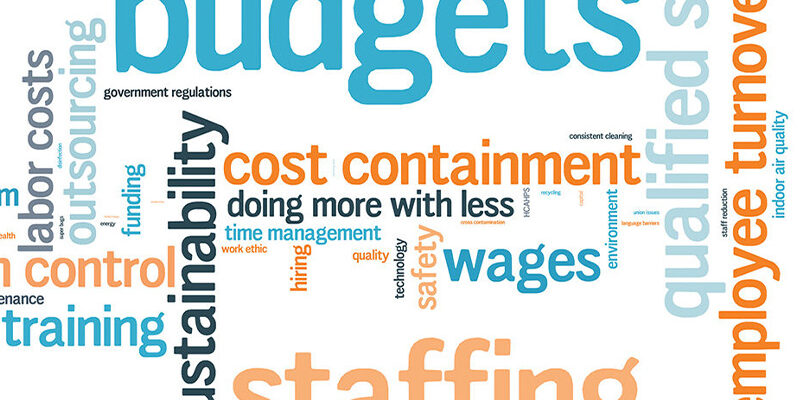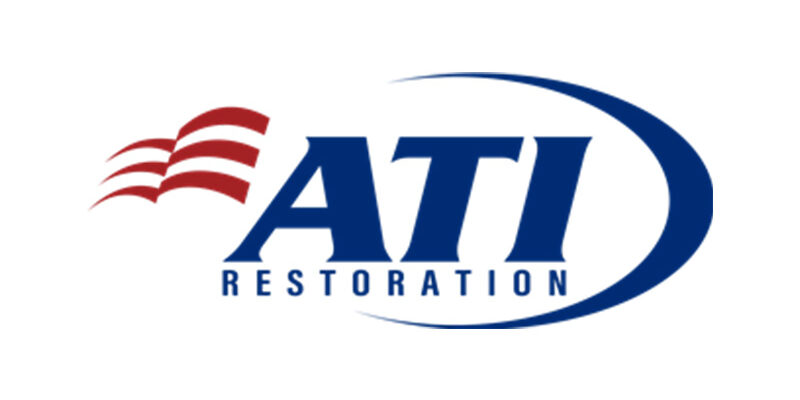Canadians Believe Climate Change is Driving up Insurance Rates
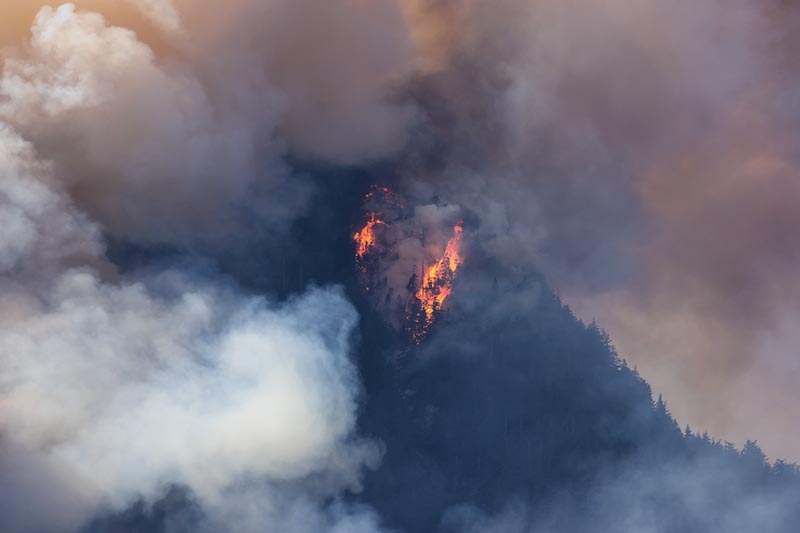
As Canadian communities experience record-breaking weather-related insurance losses, almost three-in-four Canadians are now worried about climate change’s effect on their properties and wallets, according to First Onsite Property Restoration’s annual Weather and Property Survey.
Commissioned by First Onsite each year, the Weather and Property Survey of more than 1,500 adults found that three quarters of Canadians (73%) are worried about being affected by climate change, extreme weather, and disasters. This concern was highest in Atlantic Canada at 79%, followed by Manitoba, Ontario, and British Columbia, all of which were above 75%.
- Additionally, three quarters of Canadians (74%) are concerned that climate change is driving up the cost of their home or business insurance. This is an 8% increase over last year.
- More than one-third of respondents (36%) report they have already experienced increases in their property insurance rates.
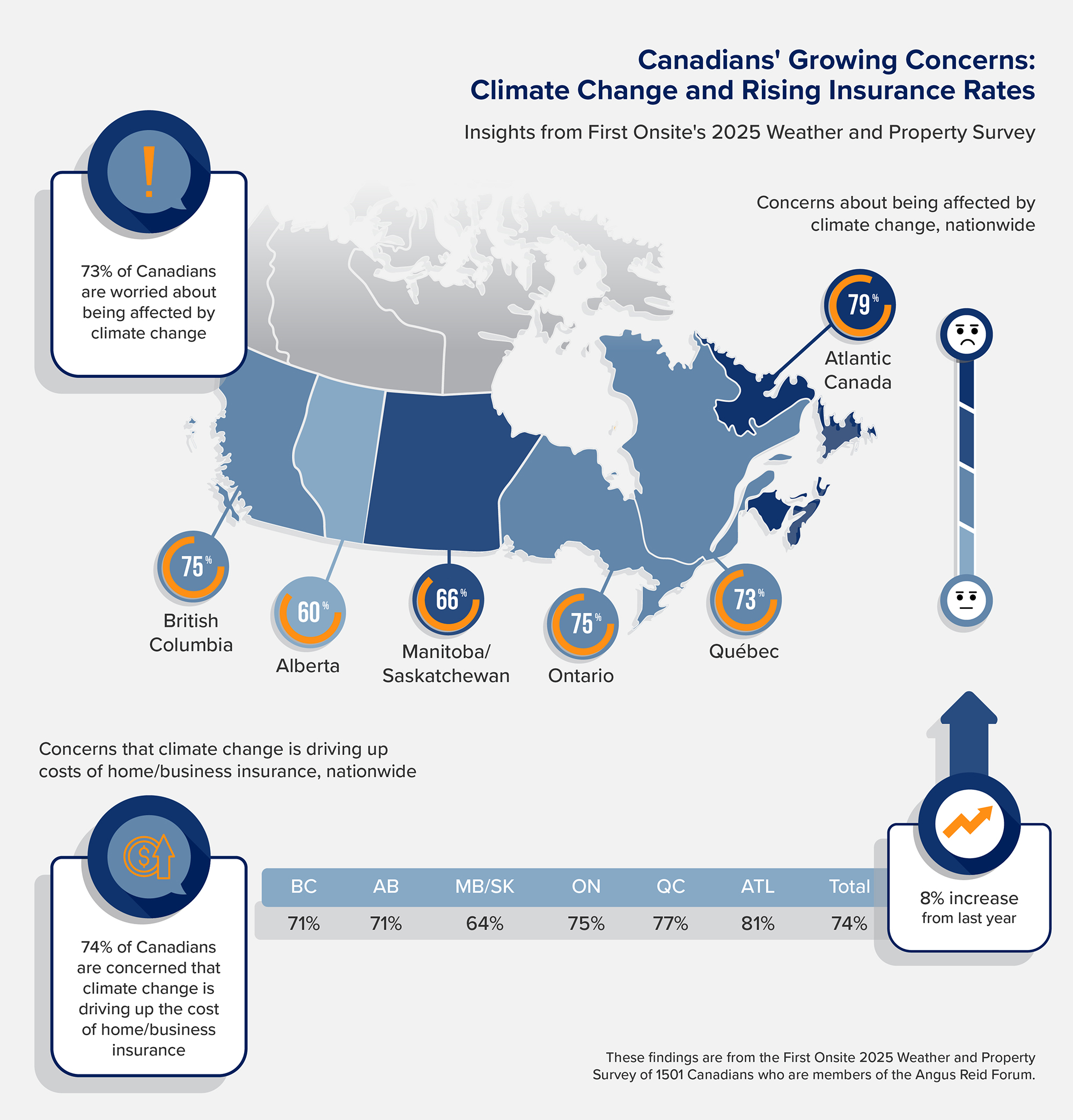
2024 breaks record with $8.5 billion in losses
According to CatIQ, 2024 shattered the record for severe weather-related property losses in Canadian history at $8.5 billion. This is nearly triple the total insured losses recorded in 2023 and tops the previous record of $6.2 billion from 2016 when wildfires tore through Fort McMurray, Alberta.
Insurance rates are on the rise
Property insurance rates across Canada have already risen by 5.28% in 2025, according to a new study from MyChoice, a Canadian insurtech company. Alberta leads the country with a 9.07% yearly increase in rates in 2025 after a massive $4.1 billion hit in damages (led by the Calgary hailstorm and the Jasper fire).
Spring’s severe rains and urban flooding
With spring underway this week, the focus shifts to severe rains and flooding. Overall, 66% of Canadians have fears of severe rains and flooding (6% higher than last year). British Columbia (73%), Quebec (70%), and Atlantic Canada (71%) were the provinces most worried about rain and flooding.
Canada has seen significant urban flooding events recently, including the 2024 floods in the Greater Toronto Area and Montréal. With 80% of Canadian cities located on flood plains and Canada’s water infrastructure aging, these flooding events will continue and face increased pressure from climate change, according to Statistics Canada.
“As springtime approaches, one of the biggest threats to property is flooding and water damage,” said Jim Mandeville, senior vice president, large loss North America for First Onsite Property Restoration. “Temperatures increase, snow transforms to rain, frozen ground thaws, and river levels rise. Water and moisture can collect around the foundation of homes and businesses. The importance of being ready for these events increases every year.”
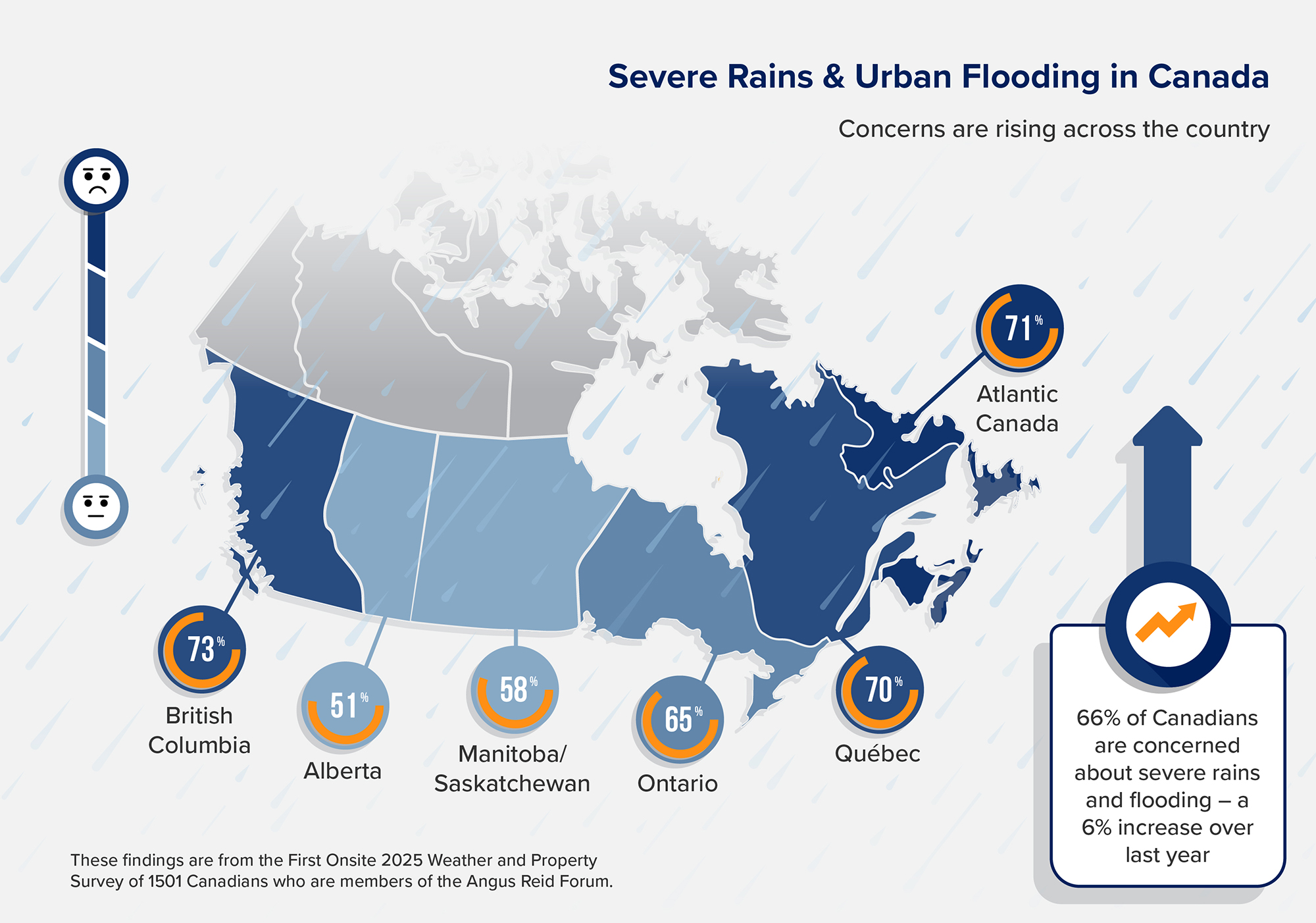
Canada increasingly worried about storms, extreme cold, freezing, and burst pipes
Given the winter Canadians have just been through, with its snowstorms and wild temperature fluctuations, it’s not surprising that respondents have shown an increased concern about winter storms.
- 71% of Canadians are concerned about winter storms, up from 63% in 2024. The increase is particularly noticeable in Ontario, where 79% of residents express concern—an 11% increase over 2024.
- 68% of Canadians are concerned about extreme cold, freezing, and burst pipes (a 10-point increase from 2024). This concern is also higher in Ontario, reaching 72%—a full 15 points higher than last year.
Much of this increased concern can be attributed to the winter of 2023-2024 being notably milder than usual. In fact, the national average temperature for the 2023-2024 winter (December-February) was 5.2°C above the baseline average. Compared to last year, this year’s colder temperatures have triggered concerns among Canadians about the impact of winter storms.
See the table below for the results of Canada’s top disaster concerns.

Mold is a leading property fear
Drilling down, the survey asked people’s top property fears regarding disasters or severe weather events. The development of mold after flooding or severe weather was another big concern, with 61% of Canadians listing it as a property fear.
In general, property damage caused by water-related events (natural and mechanical flooding) typically accounts for nearly 70% of all emergency responses for First Onsite. Moreover, on properties where water damage from flooding has occurred, mold growth poses a severe threat to the sanitation of the property.
The excess water and moisture caused by spring showers and melting snow can drive mold growth, especially in dark, damp spaces. For residential and commercial property owners, it is important to be aware of the environmental triggers that feed mold growth—temperature, moisture, and a lack of ventilation.
Below are the property fears from severe weather such as mold, the cost of renovations and repairs, and the loss of valuables and personal items.
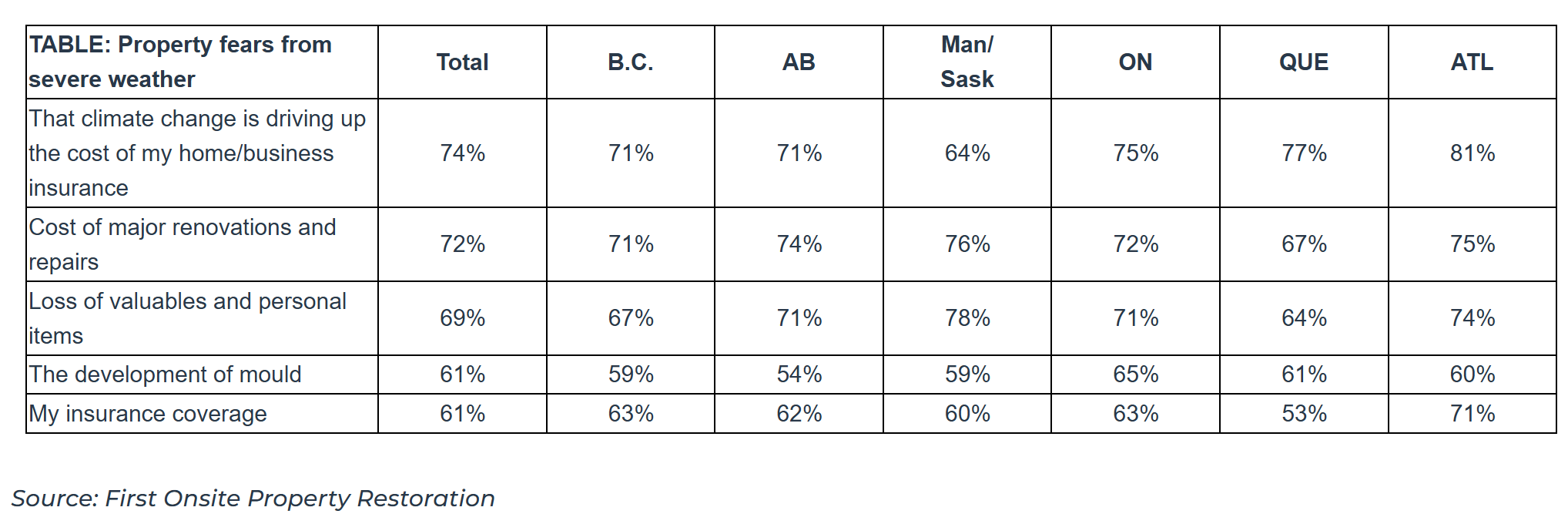
Protecting property from the seasons
“The increased occurrence and intensity of weather-related events is a constant driver for homeowners, businesses, and communities to be more resilient and better prepared for tomorrow,” Mandeville said. “With the right planning and resources in place, people can be better equipped to respond to property emergencies.”
First Onsite offers free homeowner and business guides on preventing property water damage and protecting against the growth of mold and mildew.




